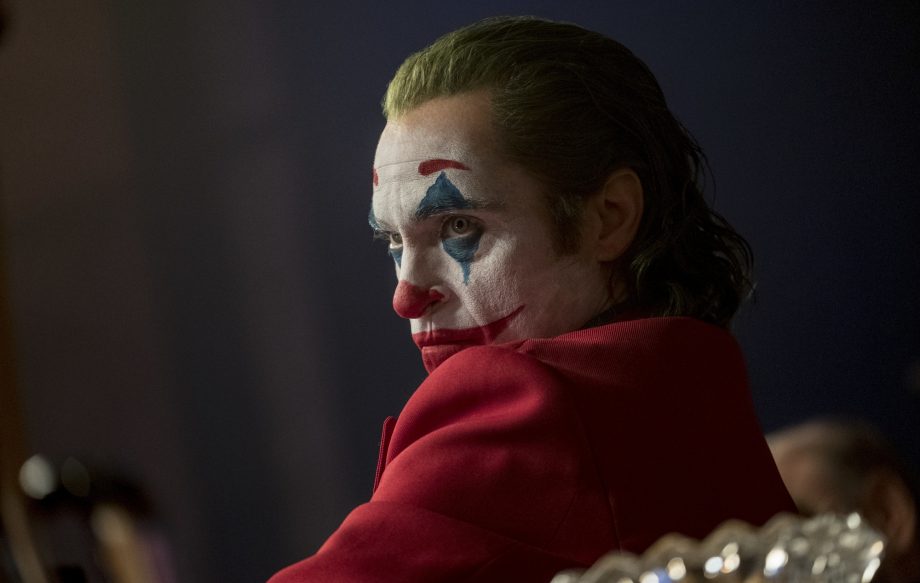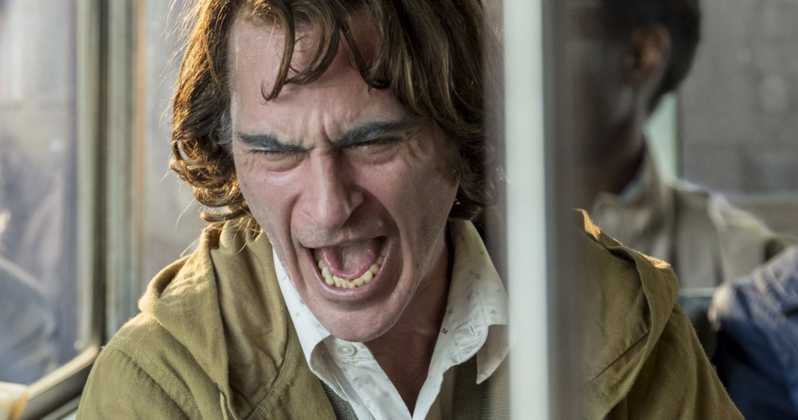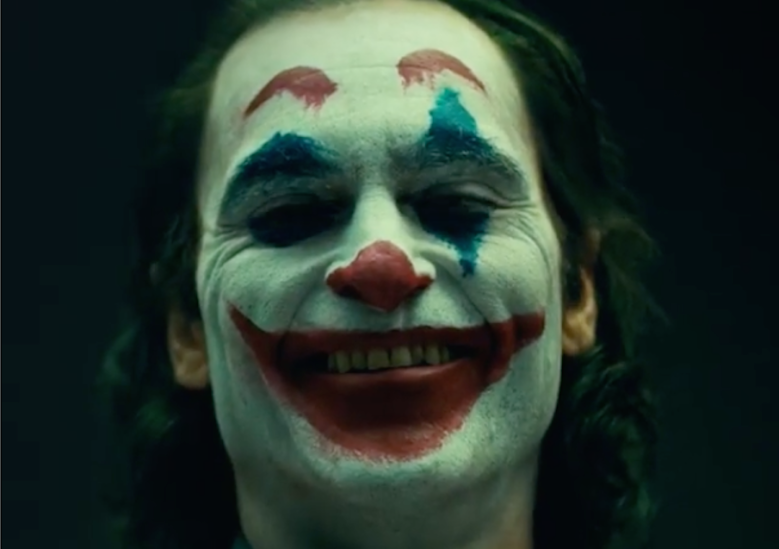Joker Discussion
A review of this film just wouldn't do it

I came out of this movie shocked. I was speechless. I still can’t believe this film actually got made. When I heard Warner Bros/DC were bringing out an origin story about The Joker, I thought they were really scraping the bottom of the barrel and had truly run out of any good ideas. I thought how can you have a movie about The Joker but not have Batman in it at all. I thought this film could not succeed. Never, have I been so wrong. This is not just the film of the year, this may be a modern classic.
My excitement for this film did a 180 when the film premiered at the Venice International Film Festival and won the Gold Lion award. To contextualise this, the last two winners were Roma and The Shape of Water. So I knew we were getting, at the very minimum, a good film. But then the controversy came and discussion about inciting violence entered the discourse surrounding this movie. The topic moved away from Joaquin Phoenix’s Oscar chances and more towards why people were boycotting or walking out of screenings. There’s so much I want to sink my teeth into with this film, and a review of it just wouldn’t suffice. If you’ll indulge me, let’s get serious here. And let’s discuss this film properly.
In the opening scene of the movie, we see Arthur Fleck beaten up by a group of kids and he lies there in despair. We get the ‘Joker’ title appear on screen and this covers virtually all of Arthur and, indeed, the screen. This foreshadows much of what this film is about – people not seeing Arthur when he is going through his struggles. This film is a tragedy through the means of a character study. It’s an upsetting and unsettling viewing, and we as the audience are bystanders to the wrongdoing beset upon Arthur.

I can’t think of a time where I’ve had so much sympathy for one film character. From the outset, we simply feel sorry for him. Arthur already has his challenges – his neurological disorder of inappropriate laughter, his skeletal figure and his apparent psychological issues mean that we don’t necessarily pity Arthur but we can observe all is not right. He suffers from delusions too, first when he imagines himself on the Murray Franklin show and later when he imagines his entire relationship with his neighbour, Sophie. But giving someone who’s mentally ill a gun, as his clown co-worker Randall does, is amongst the worst things you can do. We know that the other clowns think Arthur is odd based on the conversation he has with his manager. But when he is given that gun, it signifies how giving the wrong type of help for someone in society is infinitely worse than doing nothing at all.
Indeed, Arthur getting the gun sets off a chain of events that lead on from one another and, eventually, spiral out of control. When we see Arthur’s journal, we see he has had suicidal thoughts or, at least, considered the ramifications of taking his own life. Yet he is given a gun. A mentally unwell man, who has suicidal thoughts, is given a gun. People are stupid and can show no sense, and this film is willing say that to your face throughout.
You might not want to hear this. But, Arthur was a good person. Not for the duration for this film or even for most of it. However, Arthur lives with his mother and clearly cares for her very much. Even when he dreams of being on the Murray Franklin show, he imagines that the common thread between himself and the talk show host, was the fact that they’d both lived and cared for their mothers. We also see him at a children’s hospital, dancing for and entertaining sick children. These are not the key characteristics or actions of someone who’s bad; quite the opposite. But the gun he was given by Randall falls out while he’s dancing at the hospital, and he’s subsequently fired. What is Arthur’s reaction when he’s fired? “But, I love this job”. He’s been beaten up, he’s been mocked by his colleagues and yet he loves what clowns can bring others – joy and laughter. Randall takes no accountability either, it is his thoughtless actions that lead to the beginning of this troubling decent into darkness for Arthur.
Arthur first uses the gun during his encounter with when he’s attacked by those 3 guys on the subway home. This is the MacGuffin around which the movie develops and continues. In Gotham, it sparks a movement as the killings represent the class war raging on in the city which Arthur is a victim of himself. He lives in poor conditions, which his Mum wants to get them out of, but the funding is cut for the social services and counselling which he is a recipient of. In a rather on the nose and not so subtle line; “they don’t give a shit about you”, encapsulates the inequality of Gotham.
The reality is no one does give a shit about Arthur. He’s isolated from everyone and he’s continuously dealt the worst cards possible. There’s only two people who care about him. His co-worker Gary, who he acknowledges was always nice to him and who he lets go when he viciously murders Randall, and, you, the viewer. For anyone watching this movie, or for anyone who chose not to walk out like many reportedly are, they are fully locked in to following Arthur’s story for the duration of the film. This is elite filmmaking. Every beat of this film revolves around Arthur and we probably go a maximum of 10 seconds at a time without seeing his face. There’s never a cut scene to another area or character doing something different, we have Arthur at the beginning, middle and end. I’m not being droll when I say that the cinematography and score of the film are almost like supporting characters, as they follow Arthur the most.
There’s been so much chatter about the violence in this movie and whether it’s glorifying it. No way. This is a lazy argument and something that has been exhausted at this point. Audience members are not dumb, and should know the difference between right and wrong. A film cannot take the responsibility for anyone’s actions whatsoever. But I do think how we react to violence in this film reveals some interesting and perhaps, more intimate, truths about us all.

I’d like to do this through exploring two scenes in particular: first the subway killings and secondly, Joker’s appearance on the Murray Franklin show. In both scenes, Arthur is getting revenge albeit through different ways and with different motives. I fear that in an overly sensitive society that we currently live in and the over censoring of our speech people are afraid to say it – it felt good to see. Now, I know this a movie and I also know taking justice into your own hands in a violent way in real life is flat out wrong. But within the confines of a cinema and, more specifically, this film, I am afforded the ability to alter my way of thinking and moral compass within the context of how I felt Arthur was being treated.
In Inglorious Bastards (2009), when the Bastards storm the cinema and blow Hitler’s head off, I didn’t bat an eyelid. I enjoyed it because I knew what they had done previously in the film, and the over the top violence in the revenge was both cathartic and enjoyable. However, in reality, I believe in justice the right way. There’s legal systems and judicial systems for a reason and it’s their job to take care of these things. But when watching a movie, I feel it’s fine to suspend these rational thoughts and side with a character. Part of the luxury of the filmgoing experience is that you can identify with characters you have zero in common with. In Inglorious Bastards, I have nothing that connects me with them in real life, but in the film I am with them.
In Joker, Arthur has been mocked publicly by his idol Murray Franklin and even when he appears on the show he is nothing but rude to him. Murray is a dick, and in that scene, as an audience member, I felt it was right for Arthur, who has now evolved into the Joker, to take him out. His hero had humiliated him on national TV and everyone had a good time doing it. His final joke being: “What do you get when you cross a mentally ill loner that, with a society that abandons him and treats him like trash? I’ll tell you what you get, you get what you fucking deserve.”
This line is everything. It’s the culmination of Arthur’s character arc and his conversion into, now, The Joker, but it’s also the lid being blown off of all his underlying suffering and agony. This explosion of rage leads to him drawing his gun and killing Murray live on show. And I don’t care, I loved it. Our sympathy for Arthur has simultaneously evolved into support, and this is support for him to carry out action. He shouldn’t just take it anymore. But it’s also the fact that so many people have been the victims of gross injustices and revenge is something you want but can’t have. People are smart enough and know that it is better in real life to take the highroad. Of course, our own personal revenges don’t involve violence necessarily but we might want to get back at someone or something, and make them pay for what they have done.
Just as we follow Arthur for much of this film, we may also become a bit like him. Depending on your own personal experiences, you may identify with or be against him. But if you take the former position, in particular, you might also project your own personal demons and injustices onto the character of Murray. He is the figure who represents when we were done wrong and this is the (only) chance we get to sit down with those injustices and confront them in front of the world to see.
Joker reveals a lot about people’s own personal experiences in life, whether this comes to trauma, injustice or revenge. These factors will impact how you see Arthur and how you view the violence. But the reality is, how you view those two things within the context of a movie has zero bearing on how you view them in real life.
What a film.